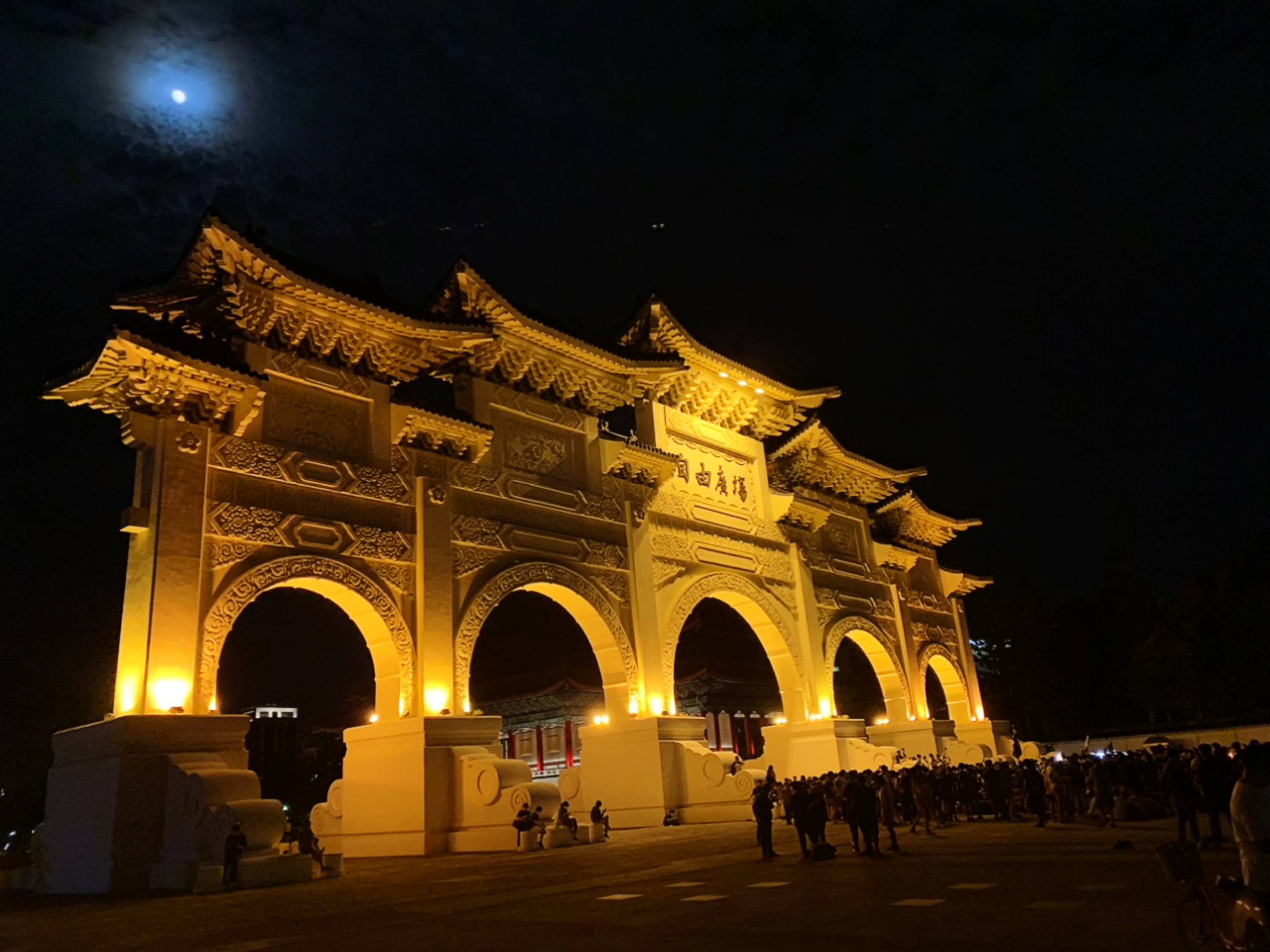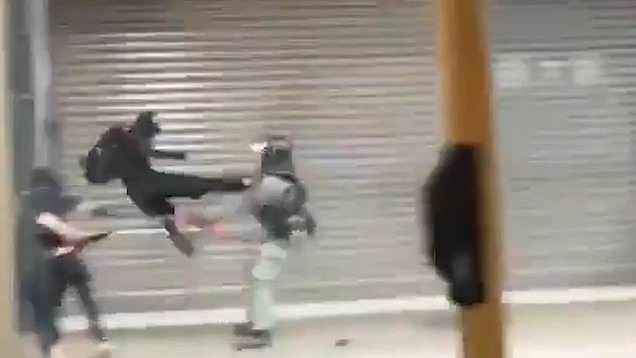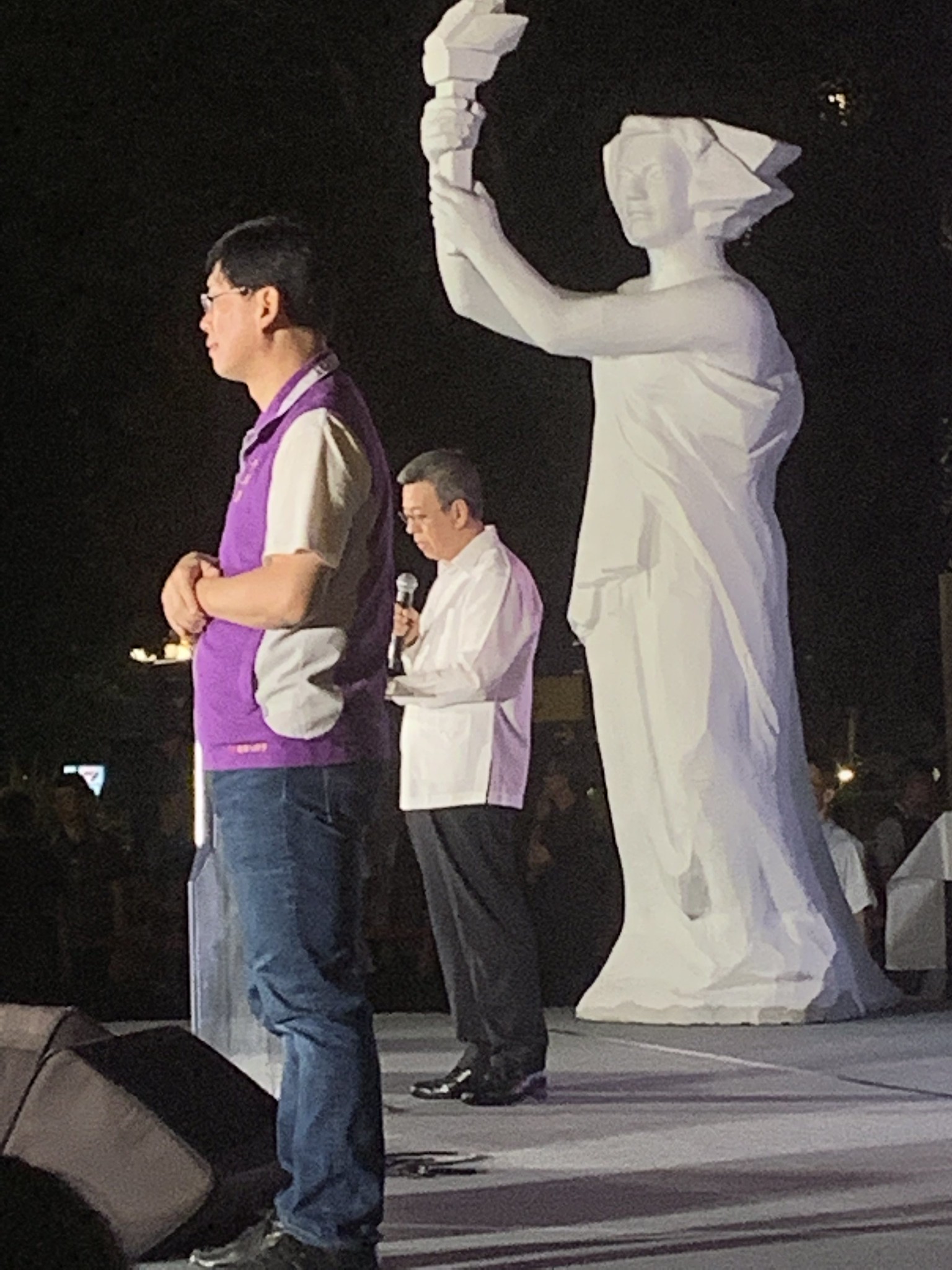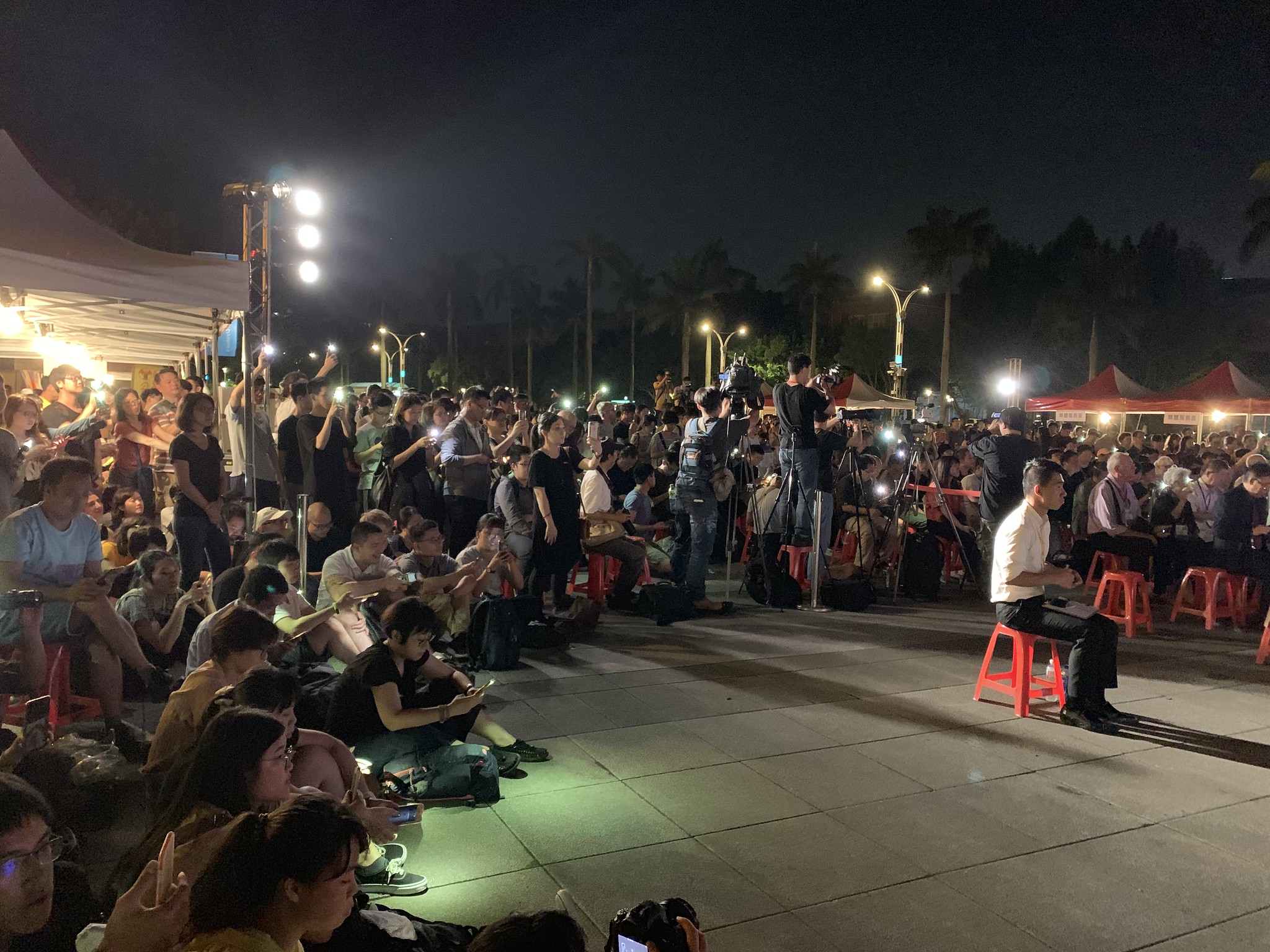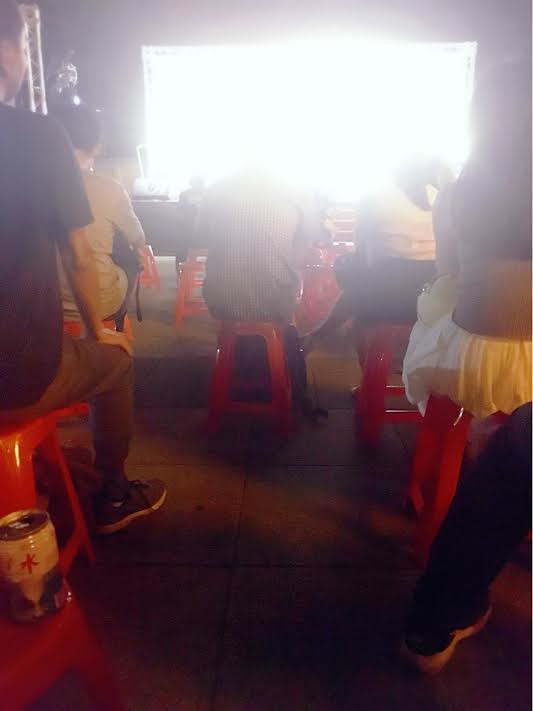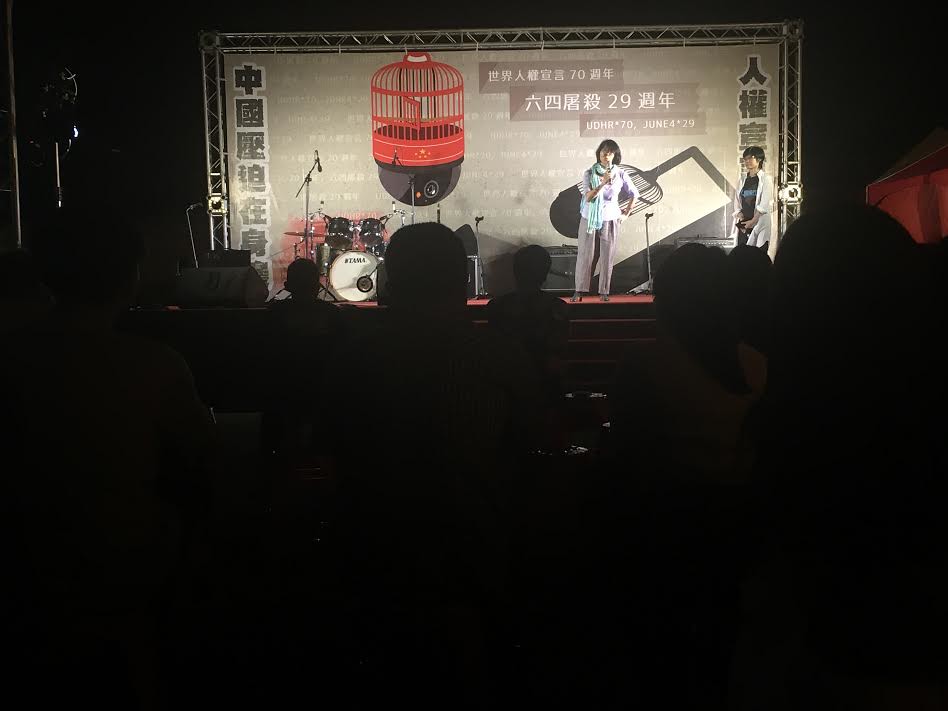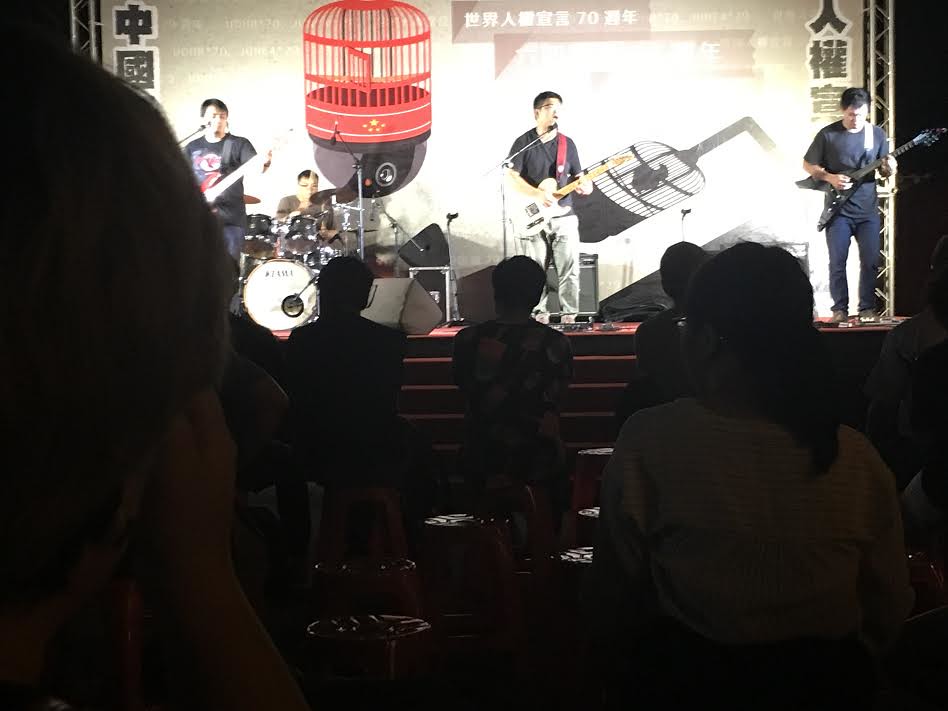It's easy to spout bullshit. It's easy to lie, or take a kernel of truth and present a slanted and ultimately inaccurate perspective on it, calling your take the real truth. It's been done since the birth of political discourse because it's efficient, it's simple, and people will believe you.
What takes a long time? Refuting someone else's lies and bad takes. That requires reams of free time and tracts of verbiage.
Fortunately, I type fast and am in quarantine, and a blog has no word limits. Why not debunk every accusation Ma Ying-jeou hurled at the DPP in his offensive post on June 4th? Sure, he briefly mentioned the Tiananmen Square Massacre, but it's clear what he really wanted to do was compliment Xi Jinping and trash his own country's democracy and elected leader.
At least, he wanted to trash Taiwan's democracy. I'm reasonably sure he believes that China is his country and Xi Jinping currently leads it.
Regardless, the crux of his argument is worth refuting point-by-point. Much of what he references was barely covered in English-language media, if at all. He uses specific terms even the most fluent second-language Mandarin speakers might be unfamiliar with (I know I was). And there are people who will believe it.
I discuss the entirety of his statement in my previous post. Here, I'll address the specifics, starting with the middle of the post where he goes into detail.
Although Taiwan still flies the banner of democracy, under the Democratic Progressive Party's governance, it has gradually slid into "unfree democracy": closing television news stations, liquidating opposition parties, "checking the water meter" of the people [this is a slang term], interfering with the judiciary, an all-around 'greening' [turning pro-DPP] of independent agencies, revising the law to exonerate the corrupt former president [Chen Shui-bian], using internal propaganda to mislead citizens and sowing hatred simply to follow the 'political correctness' of the so-called 'anti-China protection of Taiwan'. International public opinion turns a blind eye to these initiatives, which harm Taiwan's freedom and democracy, but I am deeply concerned.
There's a lot to cover here, so let's go point-by-point, news item by news item.
"Closing television news stations"
The television station in question is CTiTV, which has severe editorial integrity issues and has been known to broadcast disinformation.
It was done because they breached regulations several times and were routinely broadcasting false information without fact-checking. They were also found to lack editorial independence from their owner, pro-China Tsai tycoon Tsai Eng-meng, whose Want Want group receives funding from China. Want Want China Times Media Group (of which CTiTV is/was a part) was also accused of taking orders directly from the Chinese government. The original Financial Times piece is here, but paywalled.
Even if you oppose the closing of CTiTV, it wasn't done to crush dissenting voices. Plenty of pan-blue networks are still on television, and CTiTV is still alive on Youtube. While other networks may have fact-checking, editorial and general quality issues (including pan-green ones, which are hardly a bastion of fantastic journalism), CTiTV is the only one the NCC has actually refused a license renewal to. Typically a network won't fall afoul of the NCC if they plausibly believed false information was true at the time it was broadcast.
Some critical responses to this incident described Taiwan's media environment as being solidly "green" -- Han Kuo-yu even stated that "90% of media is pan-green" during the 2020 election -- and taken CTiTV's downfall as a harbinger of some sort of authoritarian DPP crackdown. That's simply not the case. It's true that by viewership the pan-green channels dominate (at about 66% as per the above link), but that doesn't mean that pro-DPP news channels are the only choice; it means more people choose to watch them.
In other words, it's possible to sincerely disagree on the NCC's decision, but it's not possible to credibly call this a grab to dominate the media or a sign of "Green Terror".
"Liquidating opposition parties"
This probably has to do with transitional justice. Essentially, Ma is saying here that money the KMT can be credibly accused of stealing over the decades of its brutal, corrupt, totalitarian rule should not be taken from the KMT and given back to the nation it was stolen from. Not great.
"Checking the water meter"
This is Internet slang for the police entering a home on false pretexts, for example, to say that the home's water meter needs to be checked when it doesn't. It's also a catch-all for general intimidation of anyone who opposes you -- usually through a real-life visit -- while making excuses for your presence.
The KMT likes to complain about this -- Alex Tsai at one point said it would lead to a modern Wuchang Uprising which...what? At first I thought it was pure projection: one thing I've learned in life is that people who make preposterous accusations against others either have engaged in those actions themselves, or want to. If someone (or a group) is screaming "all these bad actors are doing this to me!" but offers little evidence that it's happening, chances are they're the ones actually doing it, and trying to deflect scrutiny.
Certainly, when I think of police intimidation to quell political dissent, the KMT has far more of a historical legacy. There is flimsy evidence for the existence of a "Green Terror", but the "White Terror" is a matter of historical fact. And frankly, even in modern times the KMT is not blameless.
However, a few cases did pop up after a search. Apparently some police showed up at a KMT think tank symposium saying protests could break out as the discussions were related to upcoming referendums, and protests were happening elsewhere. The KMT insists it wasn't a public event and only the press was notified, calling the excuse for the police presence "farfetched". In another incident, an elderly woman was visited by police after posting disinformation about the then-upcoming 2020 election.
Neither of these incidents, if true, looks great. However, the symposium was not stopped and no one was arrested or harmed. (I also couldn't find any proof that there's some DPP-led crackdown on freedom of expression). The woman was asked to explain her post at a police station in accordance with the Social Order Maintenance Act -- not great, as authorities paying someone a personal visit over something they've said sends a specific kind of message given Taiwan's political history -- but as far as I can tell was not arrested or further troubled.
While the DPP is hardly perfect and their methods of handling disinformation potentially problematic, neither of these incidents definitively proves that the DPP is turning Taiwan into an "unfree democracy" or instituting a reign of "Green Terror".
"Interfering with the judiciary" and "turning independent agencies green"
These accusations are more vague, but seem to refer to a variety of issues. This KMT News Network post is barely readable (no, it's not a machine translation) but provides little actual evidence of judicial interference, stopping at an insistence that it is happening. The KMT took a comment about the "Political Investigation Office" out of context in regards to the recent by-election between gangter Yen Ching-piao's son and DPP candidate Lin Jingyi -- there appears to be a lot of booming anger but very little actual evidence that anything illegal took place.
In terms of that "all-around greening of independent agencies", there have been a few accusations of nepotistic activity in various agencies, and an insistence that the NCC (the agency that revoked CTiTV's license, discussed above) has been "turned green" -- all with very little proof.
I'm not saying that the DPP is perfect and incorruptible; that would be risible. All parties do unsavory things. However, when it comes to these specific accusations, I don't see much there.
"Revising the law to exonerate the corrupt former president"
This is getting very long, so I recommend reading the Taipei Times coverage of this issue if you want to know more. I'm not going to opine on whether the law being amended is actually unclear, or the types public funds in question are functionally the same, as I'm not an expert in that area. I'm also not going to spend a lot of time discussing Chen Shui-bian, as that's old news.
Sure, it doesn't look great to change a law in a way that would exonerate someone convicted of corruption from your own party, although the KMT hardly has a spotless history when it comes to corruption and inappropriate use of funds (that's why the Ill-Gotten Assets Committee exists), and the article notes that they've done the same thing:
While saying that the KMT set a bad legal precedent in 2013 by amending the same article to exonerate former KMT legislator Yen Ching-piao (顏清標) from allegations of misappropriating public funds, the NPP said the DPP yesterday again set a bad precedent by forcibly passing the bill at the legislature.
Think what you like about Ma's accusation here, but remember that he's probably not too interested in discussing the KMT's similar political maneuvers.
"Using internal propaganda to mislead citizens and sowing hatred simply to follow the 'political correctness' of the so-called 'anti-China protection of Taiwan"
Look, honestly, this just sounds like mad ranting. There's no actual accusation here: Ma is just mad that society rejects his and the KMT's insistence that Taiwan is Chinese and should embrace a Chinese identity. They don't want to admit that the CCP is a threat to Taiwan and attempts at warming relations with them will only hand them opportunities to render Taiwan economically dependent on and politically tied to China, making a move away from unification more difficult.
They simply cannot accept that Taiwanese do not think they are Taiwanese and that this angers China, and the DPP acknowledges and works with these facts. Acknowledging the general consensus on Taiwanese identity is apparently "propaganda" and being pragmatic on the threat of invasion from China is "politically correct" maneuvering to make Taiwan "anti-China".
The KMT will never admit that their own forcing of Chinese identity -- including the attempted destruction of the Taiwanese language in favor of Mandarin -- onto an island they occupied was the "internal propaganda" they speak of. They'll never admit that the social change toward Taiwanese identity took place before the DPP took power in 2016, and in fact spiked when Taiwan fully democratized and grew throughout Ma's own administration. They'll never admit that China is a threat, not a friend. And certainly they'll never admit that Taiwanese by and large do not want to be part of China. They'll never admit that their own attempts to force Taiwanese to identify as Chinese failed, and are unlikely to succeed in the future.
There is literally nothing else there, so let's move on.
Furthermore, the coronavirus pandemic has shown over the past two years that the government has not done enough to procure vaccines, and their chaotic 'rapid screening' policies show that the government's "proactive deployment" is a falsehood. DPP leaders and the so-called "1450" [the so-called DPP "Internet army", named for an amount of money said to be allocated toward cultivating it] attack and discredit any critics [the actual phrase is "smear red"].
I discussed these particular distortions in my previous post, but I think they belong here as well, so I'll quote myself in green:
I'll admit that Taiwan's pandemic response has not been perfect in every aspect, at all times. There have been poor decisions, politically-motivated choices and lags. However, I'd describe the overall pandemic response as sterling -- no, gold standard. Anyone who thinks that Taiwan did a poor job handling the pandemic is straight-up full of it. All you need to do is look at how the entire rest of the world save possibly New Zealand handled it. Most accusations to the contrary distort what actually went on with the early vaccine purchases or blow up small mistakes into catastrophic ones. Most of it is based on lies.
As for the "1450" Internet troll army, well, I'm sure every party has people working on influencing public conversation. I won't pretend it's beyond the pale to say the DPP has one (and the KMT surely has one too -- I recall an ad surfacing years ago promising free bento boxes to attendees of a seminar on how to post online to bolster the KMT's image, but can't find a link).
That said, I can't find any proof that the "1450" army actually exists, and it would be very weird to allocate such funds through the Council of Agriculture, no? What's more, people decrying the "1450" have been known to misattribute the origin of the phrase to mean NT$1,450 paid to each Internet troll working for the DPP.
Basically, there are a lot of accusations and very little proof here.
In sum, Taiwan actually has done an overall excellent job handling the pandemic. When you see people online praising that, it's because there's good reason to do so. If the KMT is sore that it's not very popular now, perhaps they should look at their own poor governance and attempts to force Taiwan toward closer relations with China.
When we shouted that the opposition should be treated kindly in order to establish core values in common on both sides of the strait, the ruling party is suppressing or even eliminating dissidents, while falling into "unfree democracy" and "elected dictatorship."
Ah yes, because the KMT is renowned for always being so kind to the opposition. They were so friendly when they threw the Tangwai in jail. Their torture and interrogation techniques were employed in an attempt to establish core values in common! The KMT has never, ever attempted to "suppress or even eliminate dissidents", the White Terror is called that because it was just very bright outside for decades!
Obviously, there is no evidence -- I don't even have a link -- that the DPP is doing this. I discussed the inclusion of "cross strait common values" and the impossibility of an "elected dictatorship" in my previous post and won't repeat them here.
Needless to say, this is the part of his argument that slides from plausible, debatable issue into lies and hokum.
Not just hokum, but more projection. Didn't the KMT spend decades during Martial Law lying about how the ideals of the Republic of China included democracy, while not instituting democracy beyond the local level in which every candidate was KMT-approved?
When someone like Ma bangs on and on about what the other guy is doing, you can be pretty sure he's done it, or he's aware that the KMT has. What was it that someone said on Twitter? Every KMT accusation is a confession? Like that.
Liars like Ma follow a second pattern, in my experience: they start out with claims that, while refutable, are based on real events or issues. You have to take time and energy to actually refute them. So if you know they're garbage, you ignore them, but if you don't, you might well believe it. In any case, at least some of them might be up for some kind of real debate, even if the actual claim made by that person is fundamentally flawed.
Then, after you've been tired out, they go for vague accusations and outright bullshit. In other words, there's a veneer of plausibility to start out, which gradually drops as the case being made grows more and more deranged.
If you ever find yourself reading something that starts out sounding pretty good, makes a few questionable claims that are nevertheless worthy of discussion, and then devolves down the road to Crazytown, be suspicious. This is a perfect example.






